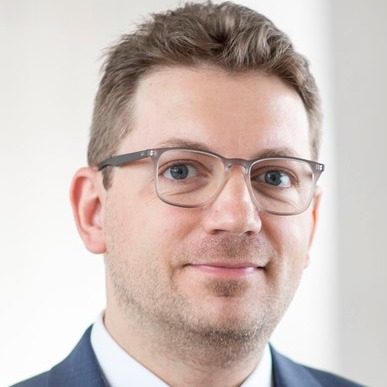Event Introduction
How to develop and translate diagnostics and cures with equity
About the speaker
Dr. Gurkan holds BS degrees in Chemical Engineering and Mechanical Engineering from the Middle East Technical University in Turkey, and a PhD degree in Biomedical Engineering from Purdue University. He completed his postdoctoral training at Harvard Medical School and Harvard-MIT Health Sciences and Technology. Dr. Gurkan’s group innovates technologies that enable global equitable access to diagnostics and personalized health. Dr. Gurkan is a leader in the efficient translation of microfluidics and point-of-care diagnostics for blood disorders. He has led international clinical studies on sickle cell disease research in the United States, Africa, Southeast Asia, and India. Dr. Gurkan has authored over 90 peer-reviewed journal articles. His research has been supported by the NSF, NIH, DoD, non-profit organizations, and several industrial partners. Dr. Gurkan’s inventions have led to 11 issued US patents and four successful biotechnology companies to date with products in global markets. Dr. Gurkan’s innovations won numerous awards, including USPTO Patents for Humanity recognition and USFDA Breakthrough Device Designation. Dr. Gurkan’s dedication to diversity, inclusion, equity, mentoring, and societal impact of his research has been recognized by numerous awards. His honors include National Science Foundation CAREER Award, American Society for Engineering Education Curtis W. McGraw Research Award Finalist, Translational Research Featured New Investigator Award, Biomedical Engineering Society Rising Star Award, MIT Technology Review Innovator under 35 Award, Doris Duke Innovations in Clinical Research Award, and he was featured by NHLBI in Today’s Faces of Sickle Cell Disease. Dr. Gurkan is a member of the Global Gene Therapy Initiative, American Society of Mechanical Engineers, Biomedical Engineering Society, and American Society of Hematology. Dr. Gurkan is a Senior Member of the National Academy of Inventors (NAI), and a member of the New Voices in Science, Engineering and Medicine Program by the National Academies of Sciences, Engineering, and Medicine (NASEM).
Abstract
We are entering a new era in diagnosing, preventing, treating, and curing major health problems and diseases with rapid advances in point-of-care diagnostics, novel therapeutics, mRNA vaccines, and genome-editing-based cures. Despite recent successes, a massive gap exists between the universities, companies, clinics, and researchers developing new diagnostics and therapeutics and their availability to the people who need them the most. The unacceptable reality is a geographic and demographic exclusion of certain populations, resource-limited clinics, and low-and middle-income countries in new therapy and diagnostic development and utilization. This is particularly relevant for cell and gene therapies to treat human immunodeficiency virus infection and hemoglobinopathies, such as sickle cell disease, which are global health crises impacting tens of millions of people primarily located in resource-constrained regions. Every year, millions of babies are born with severe hemoglobin mutations, such as sickle cell anemia and beta-thalassemia. 99% of people living with severe hemoglobin disorders reside in low- and middle-income countries. In these regions, preventable blood disorders go mostly undiagnosed and untreated, which leads to high mortality rates in children under five. My group works on gaining a fundamental understanding of hemoglobin, red blood cells, blood rheology, blood cell biology, vascular biology, and human microcirculation. Our research has led to new biomedical microtechnologies that improve access to timely diagnosis and personalized management of existing and emerging treatments. In this talk, I will present our use-driven and need-oriented adaptive engineering approach with roots in fundamental design thinking. I will describe an innovation-enabled, accessible precision medicine approach for underserved populations. I will share real-world experience from clinical studies conducted in the US and overseas, which led to new products that are in use in over 44 countries to date.
The Leads
Speakers and Invites

Umut A. Gurkan
Case Western Reserve University

